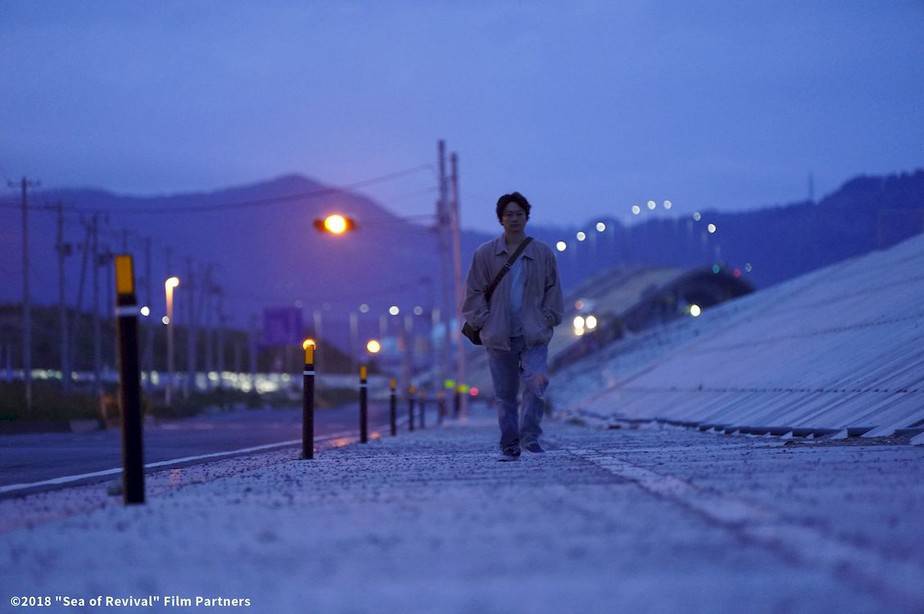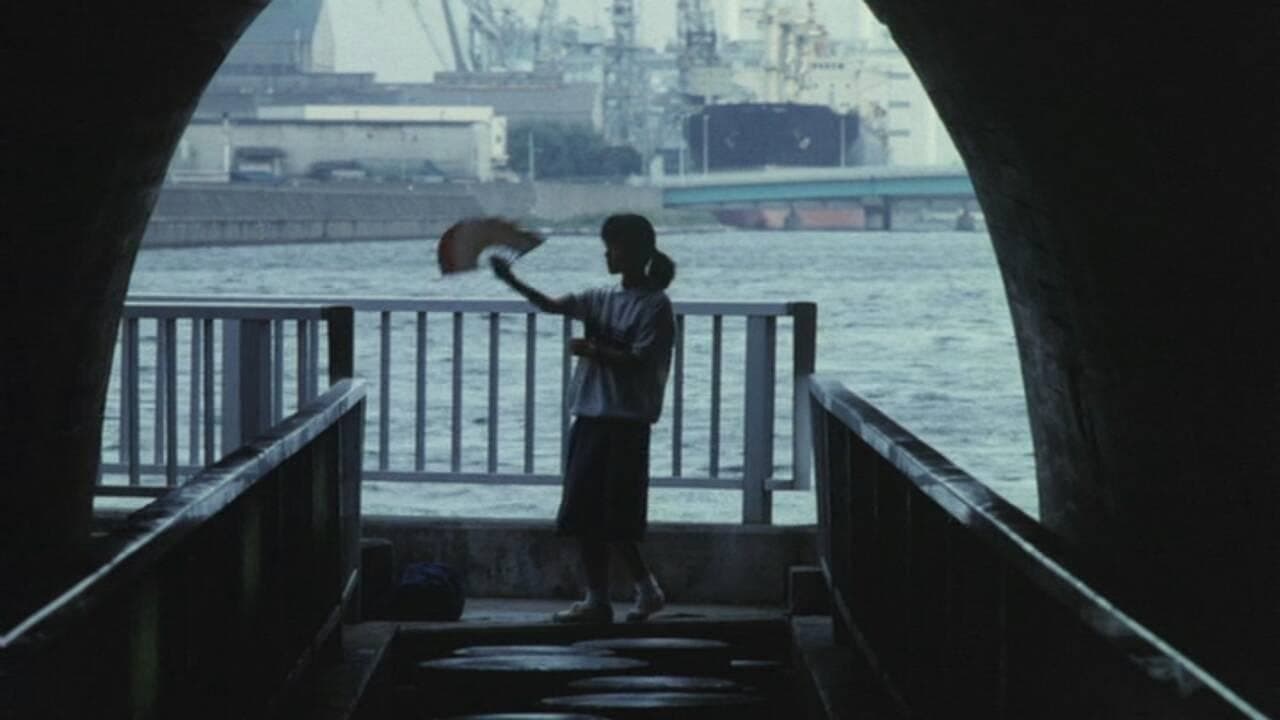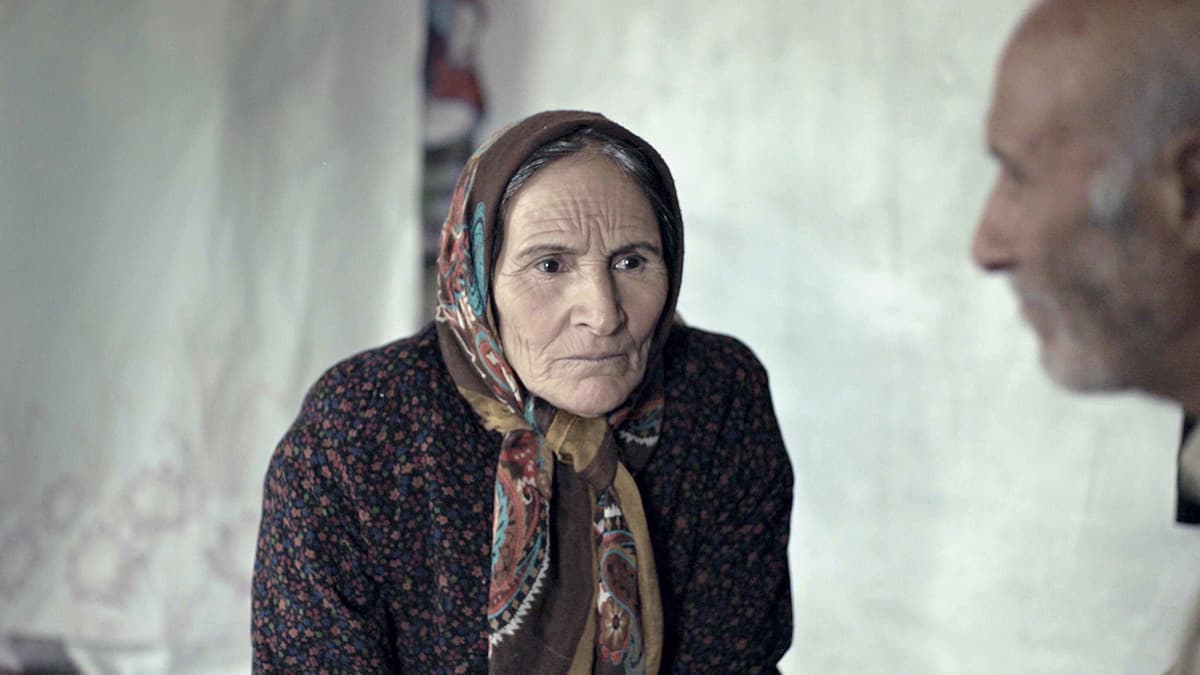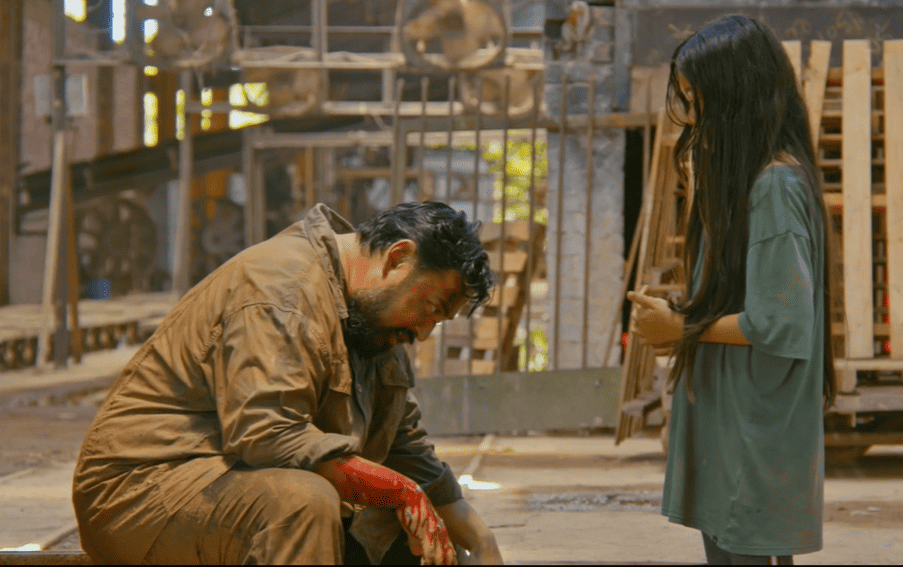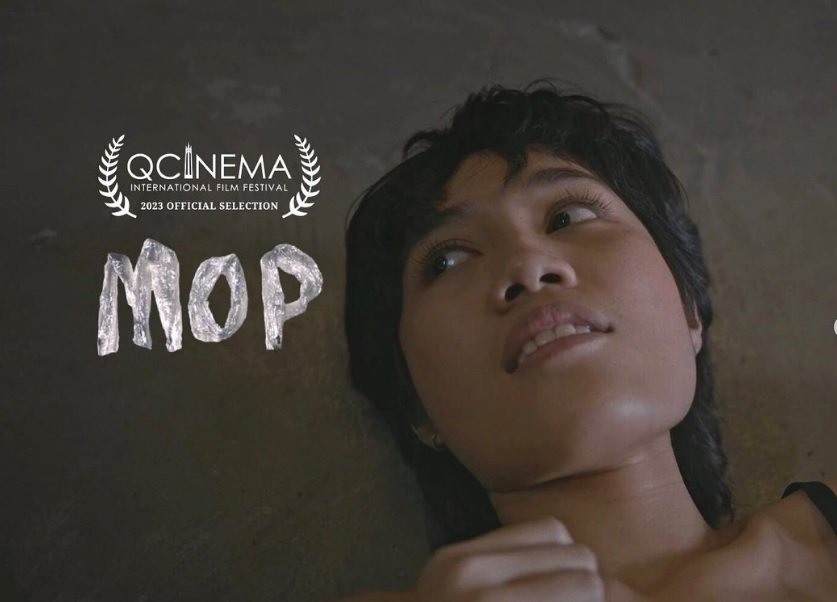In my book, Kazuya Shiraishi has raised to be the sterling voice of Japanese mainstream cinema during the last few years, with films like “Birds Without Names“, “The Blood of Wolves” and others combining artistry and context in the most entertaining fashion. “Sea of Revival” attempts to follow in the same footsteps.
Sea of Revival is screening as part of The Japan Foundation Touring Film Programme

Ikuo works at a printing plant but has troubles with both gambling and drinking, with his life having taken a rather failed path. However, his girlfriend, Ayumi, who lives together with him and her teenage daughter from a previous wedding, Minami, is not willing to let him go. In order to “save” him, and their financial situation, she decides to take the whole family and move to her hometown, Ishinomaki, in her widowed father's house, where she can also take care of yet another person. Despite the appearance of her former husband, who is a true bully, the family slowly starts to adapt to the new environment, as Onodera, Ayumi's childhood friend, finds a job for Ikuo, Ayumi opens a beauty salon and Minami finds a friend in the face of an old schoolmate. However, during a night when mother and daughter have an intense fight leading to the latter's disappearance, and another fight, this time between the couple, tragedy strikes in the worst way.
Let me start with the negative. There is something unfit in Masato Kato's writing of the film. While the overall story is interesting and the plot twists quite shocking, something seems not to be working. Ikuo is a good protagonist, with his unavoidable downward spiral being intriguing both as a concept and in terms of Shingo Katori's acting; however, I felt that his character, who provides the main arc of the narrative in essence, would benefit significantly if the characters surrounding him were more thoroughly analyzed, thus making their interactions more relatable, and in essence, more logical. The way Onodera is (not) presented, the almost completely out of context relations of Ayumi's father with the local yakuza, the role of Minami's stepfather and the relationship of Minami with Ikuo are all underdeveloped, in essence stripping the various events of the story from the impact they could have otherwise. In that regard, I have to say that the material would be better suited for a (mini) series, since the 124 minutes of the movie do not seem enough to analyze the material fully.

Apart from the aforementioned though, Kazuya Shiraishi's direction keeps the story intriguing, while the main theme, that someone has to hit rock bottom in order to change radically, and even in that case, will need much help, is presented quite well, and actually carries the film until the end. Furthermore, Ikuo's downward spiral is presented excellently, with Jun Fukumoto's cinematography creating a world where grey and darkness dominate, in essence the nominal environment for the concept. Furthermore, the fact that the sea provides the only solace works both visually and contextually. The rhythm of the movie, as implemented by Hitomi Kato's editing is also very fitting, and both he and Shiraishi do their best in order to condense the whole story in the duration of the film.

The acting aspect on the other hand, suffers due to the little allocated time to each character, and I felt that actors like Lily Franky would benefit much from some more time on screen. Apart from Shingo Katori, the second most interesting performance came from Yuri Tsunematsu as Minami, who highlights her teenage frustration and disorientation in the best fashion.
“Sea of Revival” is not without merits, and I feel that no one who watches it will leave the cinema disappointed; however, the flaws in the writing are still there and strip the film of a quality similar to Shiraishi's previous films.


